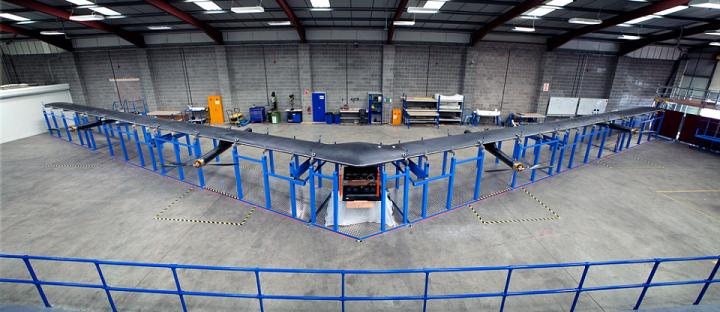
Social networking giant Facebook has unveiled a full-scale drone that will be used to provide internet access to remote areas of the world.
Code-named ‘Aquila’, the solar-powered drone is designed to fly at an altitude of between 60,000ft and 90,000ft without landing for three months at a time.
With a wingspan 42m, the aircraft will be lifted-off using helium balloons, and beam signals to a base station on ground.
Facebook global engineering and infrastructure vice-president Jay Parikh said: "Since we launched Internet.org, it’s been our mission to find ways to provide internet connectivity to the more than four billion people who are not yet online.
"Our goal is to accelerate the development of a new set of technologies that can drastically change the economics of deploying internet infrastructure.
"We are exploring a number of different approaches to this challenge, including aircraft, satellites and terrestrial solutions."
How well do you really know your competitors?
Access the most comprehensive Company Profiles on the market, powered by GlobalData. Save hours of research. Gain competitive edge.

Thank you!
Your download email will arrive shortly
Not ready to buy yet? Download a free sample
We are confident about the unique quality of our Company Profiles. However, we want you to make the most beneficial decision for your business, so we offer a free sample that you can download by submitting the below form
By GlobalDataThe drone was trialled in the UK for the first time in March, and Facebook plans to carry out drone flights in the US later this year.
The Aquila programme is intended to provide internet services to 10% of the population that are currently without access.
In 2013, Facebook launched its Internet.org initiative along with partners, including Samsung, Ericsson, MediaTek, Opera Software, Nokia and Qualcomm.
The initiative aims to connect the entire world through internet services; however, activists have criticised the service for violating net neutrality.
Image: Facebook’s Aquila drone, which has a wingspan of 42m. Photo: courtesy of Facebook.


